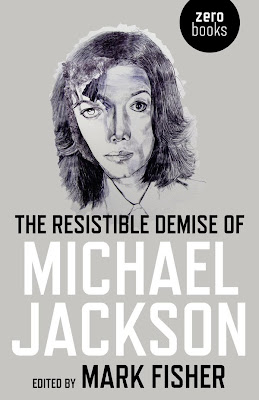
It's a pretty safe bet that at most of tonight's Halloween parties people will make a REALLY big deal out of Michael Jackson's Thriller. Ahh...he's back from the dead! I also wouldn't be surprised to hear an ironic shout out to Bobby Pickett's "Monster Mash." I used to hate the song, but now it reminds me of my favourite episode of Freaks and Geeks. And you can expect there to be a lot of folks dressed up like characters from Donnie Darko - especially the combination of a skeleton body suit with a zip up hoody from American Apparel. When I saw it in grade 10, Donnie Darko defined Halloween for me: the music (both the original score and the songs by Joy Division, Echo and the Bunnymen, Tears for Fears, etc.), the eerie suburban setting, the freaky costumes, the whole atmosphere really. So what if the plot about time travel is pretty much incomprehensible and the straight to video sequel looks like absolute garbage. If nothing else, Donnie Darko captured the mood (see Bat for Lashes' video for "What's a Girl to do"), the macabre spirit of 80's for all of us who were 20 years too late.
Here's my list of albums that go bump in the night. In other words, it'd be a grave mistake to spin these records on a sunny afternoon. It's probably a good thing I'm not having a party because, as you can see from this list, it'd be a real downer...

Adore - Smashing Pumpkins (1998)
This dark but unexpected departure for the band was the first without their previous drummer, J.C., and a quickly turned into therapeutic project for Corgan after the loss of his mother. Featuring late Victorian style photography and oodles of over the top gothic costumes, skeletal song structures, flirations with electronica, and barely-there vocals, this subdued departure was also the Pumpkins' last great album.

Random Spirit Lover - Sunset Rubdown (2007)
Everyone seems to have forgotten about this album, now that the critically acclaimed Dragonslayer is out. Personally, I prefer the extended meanderings of Spenser Krug to the tightly wound pop of the band's latest release. This was an album that channelled a host of spirits in carnivalesque celebration.

Disintegration - The Cure (1989)
Seems like an obvious choice, but what's so bad about that? Droning synths and lush orchestration. The Cure have a lot of albums that could be on this list, but Disintegration remains my favourite, probably because I discovered it at the perfect time.


Limbo, Panto - Wild Beasts (2008)
Though this year's Two Dancers is touted as a step forward for the band, I was pretty satisfied with their heavier debut. Songs like "His Grinning Skull" and "She Purred, While I Grrred" can't be replicated - the seedy nihilism of Limbo, Panto is almost intoxicating.

Mezzanine - Massive Attack (1998)
I don't think there's a better rainy day album. It's industrial: slick, lethal ("Inertia Creeps") and all of a sudden so chilled out ("Exchange"). The first time I heard "Teardrop" I kept it on repeat for hours. This album manages to evoke a wide spectrum of moods, while maintaining a stylish core of consumer malaise on the road to perdition.

Ocean Rain - Echo and the Bunnymen (1984)
I must confess, I only really got into this album after seeing Donnie Darko, but since then I've sung its praises. "Killing Moon" and "Thorn of Crowns" are perfectly sinister, full of epic ambition and metaphysical jargon.

Maxinquaye - Tricky (1995)
He sampled "Suffer" by the Smashing Pumpkins (appropriately named "Pumpkin") and hasn't come close to this sort of consistency or execution since this was released in the mid-90s. He named the album after his mother, Maxin Quaye. "Aftermath" is undoubtedly one of coolest tracks ever, managing to sample both Blade Runner and Marvin Gaye. And there's a flute! Tricky gets all the credit, but its really his then-girlfriend Martina Topley-Bird, whose angelic vocals contrast Tricky's grit, that steals the show.







